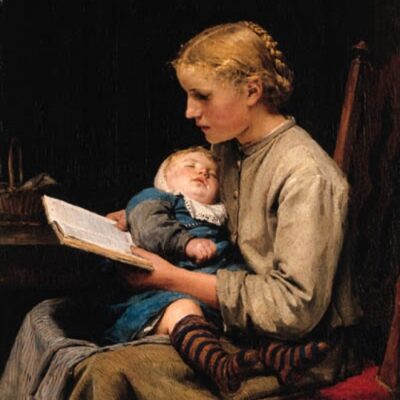Girl, Woman, Other by Bernardine Evaristo
Bernardine Evaristo describes herself as an activist particularly interested in representing marginalized voices in novels that are “rich, complex, original, exciting, and as readable as possible.” In Girl, Woman, Other, we follow 12 Black British womxn whose lives, dispersed throughout England and intersecting over the span of a century, showcase the varieties of their experiences, identities, and options. (The author uses the spelling, “womxn” in interviews. It has been adopted by various organizations, including student university groups in the US and UK, who call it more inclusive than “women” and other alternative spellings.) Because of the experimental narrative form used by the author (she refers to it as “fusion fiction” and “pro-poetic patterning”), we can see into each character’s past as they are experiencing events in the present. The narrative isn’t written in first person, but it feels like it is. We are given access to what individuals are thinking and how they justify their behavior to themselves as they build or destroy relationships, face family problems, suppress or act on desires, and experience disappointments and tragedies.
The exceptionally well-drawn cast of characters reflects the author’s worldview that “we are all complicated and we are all flawed and that’s just what it means to be human. And we shouldn’t take ourselves too seriously!” The individuals in Girl, Woman, Other live messy, nuanced, hypocritical, contradictory, vulnerable, and humorous lives; but no more or less than anyone else. There are no traumatized victims here and no sacred cows. There is no moral high ground; we’re not going to be lectured. That’s why we want to live in this novel with this community of womxn. Forever.
The story represents each character’s fluidity: fluidity of sexuality, gender, color, class, and movement in and out of each other’s lives. It also portrays changes in relationships and how, in some cases, as Black womxn achieve, they rely less on those from their past. In the scene from which this quote is taken, Yazz, the novel’s youngest character, who describes herself as “part ’90s Goth, part post-hip hop, part slutty ho, part alien,” is home on break from University. One night, her mom, Amma, a lesbian socialist playwright, asks who she just went out with and what he does. (Note that I have tried to duplicate the author’s use or nonuse of punctuation, capitalization, and narrative form.)
Yazz replied with dead-pan insolence, Mum, he’s a thirty-year-old psychopath who abducts vulnerable women and locks them in a cellar for weeks on end while he has his wicked way with them before chopping them into pieces and sticking them in the freezer for his winter stews.
before waltzing upstairs to her room leaving a whiff of whacky-backy
nor is the child she raised to be a feminist calling herself one lately
feminism is so herd-like, Yazz told her, to be honest, even being a woman is passé these days, we had a non-binary activist at uni called Morgan Malenga who opened my eyes, I reckon we’re all going to be non-binary in the future, neither male nor female, which are gendered performances anyway, which means your ‘women’s’ politics, Mumsy, will become redundant, and by the way, I’m humanitarian, which is on a much higher plane than feminism
do you even know what that is? [p. 39]
















